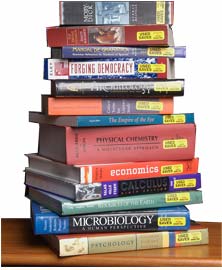Final Paper Topics

Choose one question from each set. Write at least 3 pages for each question. Show me what you've learned by not only explaining positions, arguments and concepts, but by critiquing them.
Set #1 Metaphysics
1. The premoderns considered metaphysics to be "first philosophy." What does this mean? Explain in detail, paying particular attention to Heraclitus, Parmenides, Plato, Aristotle and St. Thomas. What difference does it make to hold this position? How did Descartes challenge it?
2. If a tree falls in the forest and there is no one there to hear it, does it make a sound? Explain and evaluate Berkeley's answer.
3. Discuss the notion of substance, as understood by Aristotle, Locke, Berkeley, and Hume. Evaluate their positions. What kinds of substances do you think there are? Why? Or do you reject the notion? Why? If you reject it, how do you explain what is real?
3. Is change real? Which philosophers denied it, and how did they argue against it? Which philosophers accepted it, and how did they argue for it? In other words, can something be the same thing over time? If so, how? If not, why not?
4. Consider an apple. Take away its redness, its smell, its texture, its shape… (i.e. all its properties). Is there anything left? Can there be a “bare particular”? Explain the bundle theory. Why would someone adopt it? Give some arguments against it, and show how substance theory is an alternative to the bundle theory. Which theory do you think is more plausible? Why?
5. Discuss the realism/anti-realism debate. What is realism? What are some arguments for realism? Against realism? Explain the various anti-realist positions. What are the arguments for and against them? Articulate and defend your own position.
6. What is a Transcendental? Discuss the Thomistic doctrine of transcendental truth. How would Kant respond to the Thomistic idea of transcendentals? Which view most closely matches your own? Why?
Set #2: Epistemology
1. What is knowledge?(Give the standard account and explain it). How does the Gettier problem impact this definition?
2. What is the best definition of truth? Critically examine the three theories we looked at. When people say, "This is true for me, but not necessarily for you," what do they mean?
3. Discuss the relation of justification to knowledge. What is the difference between classical and contemporary foundationalists? Why have contemporary foundationalists modified the classical position? Be sure to explain Sosa's images of raft and pyramid; the details of the internalist-externalist debate; reliabilism and virtue ethics.
4. Discuss the differences between rationalism and empiricism, with reference to at least one philosopher representing each position. What are the strengths and weaknesses of each position? How would you characterize yourself?
5. Discuss the differences between a priori and a posteriori knowledge, with reference to at least one philosopher for each source. Do we have innate ideas? Evaluate the empiricist's critque against innate ideas. Explain how Quine rejects the analytic/synthetic distinction, and the result of this for a priori knowledge. What is at stake if we accept or reject a priori knowledge?
6. What is skepticism? Distinguish Descartes' skepticism from Hume's skepticism. Which type does more damage to us as knowers? Can you refute the skeptic? Which arguments against skepticism seem most plausible to you? Hume said that we cannot live as skeptics. If this is so, then what is the lesson-- if any--of skepticism?
7. Discuss the three theories of perception: direct realism, representationalism, and idealism/phenomenalism. (Be sure to include the major philosophers who held these positions, and why they did so.) What are the strengths and weaknesses of these theories? Which theory makes the most sense? Why?
Choose one question from each set. Write at least 3 pages for each question. Show me what you've learned by not only explaining positions, arguments and concepts, but by critiquing them.
Set #1 Metaphysics
1. The premoderns considered metaphysics to be "first philosophy." What does this mean? Explain in detail, paying particular attention to Heraclitus, Parmenides, Plato, Aristotle and St. Thomas. What difference does it make to hold this position? How did Descartes challenge it?
2. If a tree falls in the forest and there is no one there to hear it, does it make a sound? Explain and evaluate Berkeley's answer.
3. Discuss the notion of substance, as understood by Aristotle, Locke, Berkeley, and Hume. Evaluate their positions. What kinds of substances do you think there are? Why? Or do you reject the notion? Why? If you reject it, how do you explain what is real?
3. Is change real? Which philosophers denied it, and how did they argue against it? Which philosophers accepted it, and how did they argue for it? In other words, can something be the same thing over time? If so, how? If not, why not?
4. Consider an apple. Take away its redness, its smell, its texture, its shape… (i.e. all its properties). Is there anything left? Can there be a “bare particular”? Explain the bundle theory. Why would someone adopt it? Give some arguments against it, and show how substance theory is an alternative to the bundle theory. Which theory do you think is more plausible? Why?
5. Discuss the realism/anti-realism debate. What is realism? What are some arguments for realism? Against realism? Explain the various anti-realist positions. What are the arguments for and against them? Articulate and defend your own position.
6. What is a Transcendental? Discuss the Thomistic doctrine of transcendental truth. How would Kant respond to the Thomistic idea of transcendentals? Which view most closely matches your own? Why?
Set #2: Epistemology
1. What is knowledge?(Give the standard account and explain it). How does the Gettier problem impact this definition?
2. What is the best definition of truth? Critically examine the three theories we looked at. When people say, "This is true for me, but not necessarily for you," what do they mean?
3. Discuss the relation of justification to knowledge. What is the difference between classical and contemporary foundationalists? Why have contemporary foundationalists modified the classical position? Be sure to explain Sosa's images of raft and pyramid; the details of the internalist-externalist debate; reliabilism and virtue ethics.
4. Discuss the differences between rationalism and empiricism, with reference to at least one philosopher representing each position. What are the strengths and weaknesses of each position? How would you characterize yourself?
5. Discuss the differences between a priori and a posteriori knowledge, with reference to at least one philosopher for each source. Do we have innate ideas? Evaluate the empiricist's critque against innate ideas. Explain how Quine rejects the analytic/synthetic distinction, and the result of this for a priori knowledge. What is at stake if we accept or reject a priori knowledge?
6. What is skepticism? Distinguish Descartes' skepticism from Hume's skepticism. Which type does more damage to us as knowers? Can you refute the skeptic? Which arguments against skepticism seem most plausible to you? Hume said that we cannot live as skeptics. If this is so, then what is the lesson-- if any--of skepticism?
7. Discuss the three theories of perception: direct realism, representationalism, and idealism/phenomenalism. (Be sure to include the major philosophers who held these positions, and why they did so.) What are the strengths and weaknesses of these theories? Which theory makes the most sense? Why?




